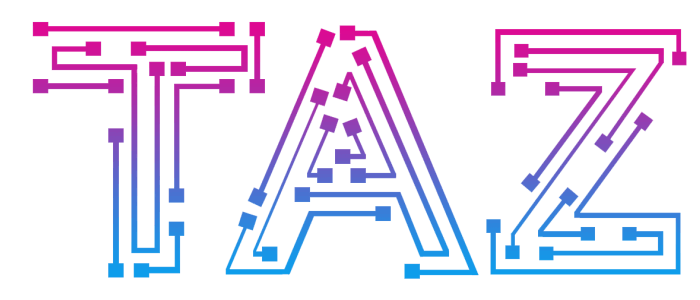The internet is a vast repository of public information, offering unparalleled opportunities for market research, competitive analysis, lead generation, and data-driven decision-making. However, accessing and structuring this data efficiently and ethically often requires specialized expertise. Manually collecting data from websites is time-consuming, prone to errors, and simply not scalable. Our Custom Web Scraping service specializes in developing bespoke solutions to extract specific, publicly available data from any website, transforming unstructured web content into actionable business intelligence tailored to your unique requirements.
We go beyond off-the-shelf scraping tools, crafting robust, reliable, and scalable web scrapers designed to navigate complex website structures, handle dynamic content (JavaScript-rendered pages), bypass anti-scraping measures, and ensure data quality. Whether you need to monitor competitor pricing, collect product information, gather industry news, generate sales leads, or analyze market trends, our expert developers leverage the latest scraping technologies and adhere to ethical data collection practices. This ensures your custom scraper is not only powerful but also compliant, maintainable, and delivers clean, structured data ready for analysis.
The Core Value Proposition: Why Invest in Custom Web Scraping?
Implementing a custom web scraping solution offers significant benefits that directly impact your market intelligence, operational efficiency, and competitive advantage:
- Access to Untapped Data: Extract specific public data points from any website that are not available through APIs or traditional data sources, unlocking unique insights.
- Competitive Intelligence: Monitor competitor pricing, product catalogs, marketing strategies, and customer reviews in real-time to stay ahead of the curve.
- Market Research & Trend Analysis: Collect vast amounts of industry-specific data to identify emerging trends, consumer preferences, and market opportunities.
- Lead Generation & Sales Prospecting: Automatically gather contact information, business details, or industry-specific leads from public directories or websites.
- Automated Content Aggregation: Collect news articles, blog posts, or research papers from multiple sources for content curation, analysis, or internal knowledge bases.
- Data-Driven Decision Making: Transform unstructured web data into structured, actionable datasets that inform strategic business decisions across various departments.
- Significant Time & Resource Savings: Automate the tedious and error-prone process of manual data collection, freeing up your team for higher-value analytical tasks.
- Scalability & Customization: Develop scrapers tailored to your exact data requirements and scale them to handle large volumes of data from numerous sources.
Best Practices and Latest Technologies
Our approach to Custom Web Scraping is built upon the most current best practices and integrates cutting-edge technologies to ensure robust, ethical, and efficient data extraction:
1. Ethical & Legal Compliance:
We prioritize ethical scraping practices, respecting `robots.txt` files, website terms of service, and data privacy regulations (e.g., GDPR, CCPA). We focus on publicly available data and advise on legal considerations to ensure your data collection is compliant.
2. Headless Browsers for Dynamic Content:
For websites heavily reliant on JavaScript rendering, we utilize headless browsers like Puppeteer (Node.js) or Playwright (Node.js, Python, .NET, Java). These tools simulate a real browser, allowing us to interact with dynamic elements, fill forms, and extract data from single-page applications (SPAs).
3. Robust Parsing Libraries:
For efficient and accurate data extraction from HTML/XML, we use powerful parsing libraries such as BeautifulSoup (Python), LXML (Python), or Cheerio (Node.js). These libraries enable precise selection of data elements using CSS selectors or XPath.
4. Proxy Rotation & IP Management:
To avoid IP blocking and ensure continuous scraping, we implement sophisticated proxy rotation strategies using residential or datacenter proxies. This involves managing a pool of IP addresses and rotating them to mimic natural user behavior.
5. Anti-Scraping Bypass Techniques:
We employ advanced techniques to bypass common anti-scraping measures, including CAPTCHA solving (via services or AI), user-agent rotation, referrer spoofing, and cookie management, while maintaining ethical boundaries.
6. Distributed Scraping Architectures:
For large-scale data collection, we design and deploy distributed scraping architectures using frameworks like Scrapy (Python) or custom cloud-native solutions (e.g., AWS Lambda, Google Cloud Functions, Kubernetes). This allows for parallel processing and high-volume data extraction.
7. Data Storage & Database Integration:
Extracted data is cleaned, structured, and stored in appropriate databases (e.g., PostgreSQL, MongoDB, AWS S3, Google Cloud Storage) or delivered in formats like CSV, JSON, or Excel, ready for your analysis tools.
8. Scheduling & Automation:
Scrapers are configured to run automatically at predefined intervals (e.g., daily, weekly, real-time) using job schedulers (e.g., Cron, Apache Airflow, AWS EventBridge) to ensure continuous data freshness.
Typical Use Cases for Custom Web Scraping:
- E-commerce Price Monitoring: Tracking competitor pricing, product availability, and new product launches.
- Lead Generation: Extracting business contact information from online directories, professional networks, or industry-specific websites.
- Real Estate Data Collection: Gathering property listings, rental prices, and market trends from real estate portals.
- News & Content Aggregation: Collecting articles, blog posts, and industry news for research, content curation, or sentiment analysis.
- Market Research: Extracting data on consumer reviews, product specifications, and industry reports.
- Academic Research: Collecting large datasets from public sources for scientific or social studies.
- Job Market Analysis: Scraping job postings to identify trends in demand for specific skills or roles.
Our Development Process:
We follow a structured and ethical development process to deliver high-quality, custom web scraping solutions:
- Discovery & Data Requirements: In-depth consultation to understand your specific data needs, target websites, and desired data format.
- Feasibility & Ethical Assessment: Analyzing the target website’s structure, anti-scraping measures, `robots.txt`, and terms of service to ensure ethical and technical feasibility.
- Scraper Design & Development: Designing the scraping logic, writing custom code (Python, Node.js), and implementing necessary bypass techniques.
- Data Structuring & Cleaning: Developing processes to clean, transform, and structure the extracted data into a usable format.
- Testing & Validation: Rigorous testing of the scraper’s accuracy, reliability, and resilience against website changes.
- Deployment & Scheduling: Deploying the scraper to a reliable hosting environment and setting up automated scheduling for continuous data collection.
- Data Delivery & Integration: Delivering the extracted data in your preferred format and integrating it with your databases or analytics tools.
- Maintenance & Support: Offering ongoing monitoring, maintenance, and updates to adapt to website changes and ensure continuous data flow.
By partnering with us for Custom Web Scraping, you are not just collecting data; you are unlocking a strategic advantage by transforming the vastness of the internet into a precise, actionable source of business intelligence. Empower your decisions with tailored, high-quality public data.
Frequently Asked Questions (FAQ)
Q: What is custom web scraping?
A: Custom web scraping is the process of developing bespoke software solutions to automatically extract specific, publicly available data from any website. Unlike generic tools, custom scrapers are designed to navigate complex site structures, handle dynamic content, and deliver structured data tailored to your unique business requirements.
Q: Is web scraping legal and ethical?
A: We prioritize ethical scraping practices and legal compliance. We strictly adhere to `robots.txt` files, website terms of service, and data privacy regulations (e.g., GDPR, CCPA). Our focus is on extracting publicly available data, and we advise on legal considerations to ensure your data collection is compliant and responsible.
Q: What kind of data can be scraped?
A: We can scrape a wide variety of publicly available data, including competitor pricing, product information, market trends, industry news, contact information for lead generation, real estate listings, and customer reviews. The possibilities are vast, limited only by the public availability of data and ethical considerations.
Q: What is the typical timeline for development, and what ongoing support is provided?
A: The development timeline for a custom web scraping solution typically ranges from 3-8 weeks, depending on the complexity of the target website(s) and data requirements. Our commitment extends beyond deployment; we offer continuous monitoring, maintenance, and updates to adapt to website changes and ensure a consistent, reliable data flow for your business.


